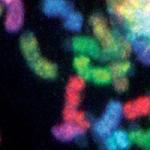
Research Topics
Ionizing radiation (IR) is a primary therapy for central nervous system (CNS) tumors, however the therapeutic benefit of IR is still greatly limited by the ability of normal brain tissue to tolerate this treatment. The microenvironment of the brain is regulated by specific barriers which include the blood-brain barrier (BBB), the integrity of which is critical to support normal neuronal processes. IR alters the structure and function of microvascular networks, and consequently, causes alterations in the cerebral microenvironment. When the BBB is disrupted, excess extravasation of proteins, biologic-response molecules (e.g. growth factors, cytokines, and clotting factors), inflammatory cells, and therapeutic drugs can damage the brain. The long term sequelae of cranial irradiation and its effect on hearing loss, cognitive dysfunction, and memory deficits produced in this manner are well documented. Therefore, it is crucial to understand not only the effect of IR on tumor cells, but also the differential effects of IR on tumor vasculature, intact cerebral microvasculature, and healthy brain parenchyma as well as how microenvironment alterations may affect the clinical efficacy of radiation treatment and development of late toxicities.
Sirtuins are a class of histone deacetylases which have purported roles in angiogenesis, oxidative stress response, and carcinogenesis. Preliminary studies have suggested that multiple isoforms of sirtuins are upregulated in response to IR. They may represent novel potential therapeutic vascular targets for pharmacologic intervention and/or radiation modification and may possibly provide a mechanism for vascular collapse in tumors. Preliminary evidence suggests that mitochondrial proteins in cerebral microvasculature, such as SIRT3, may regulate endothelial integrity following exposure to IR. Additionally, sirtuins have been found to be crucial in mediating the oxidative stress response in animal models of neuronal degeneration, producing dementia and Parkinsonian phenotypes, similar to the late-effects of IR-induced accelerated neuronal degeneration response in patients. Therefore, we hypothesize that sirtuin isoforms play a role in biochemical processes in neurons and/or astrocytes by which ionizing radiation produces neurotoxic effects.
The ultimate goal of this investigation is to correlate these findings in patients with neurocognitive assessment and functional imaging and determine if targeted pharmacologic therapies produce a gain in the therapeutic ratio of IR. To address this need, we hope to develop clinical protocols which quantitate the functional effects of IR using standard and hypo-fractionated regimens on diseased and normal CNS, and determine if pharmacologic modulators of pathways activated by sirtuins mitigate the negative neurocognitive sequelae of IR.
Biography
Selected Publications
- Nguyen P, Lee S, Lorang-Leins D, Trepel J, Smart DK. SIRT2 interacts with β-catenin to inhibit Wnt signaling output in response to radiation-induced stress. Mol Cancer Res. 2014;12(9):1244-53.
- Gril B, Palmieri D, Qian Y, Smart D, Ileva L, Liewehr DJ, Steinberg SM, Steeg PS. Pazopanib reveals a role for tumor cell B-Raf in the prevention of HER2+ breast cancer brain metastasis. Clin Cancer Res. 2011;17(1):142-53.
- Nguyen P, Awwad RT, Smart DD, Spitz DR, Gius D. Thioredoxin reductase as a novel molecular target for cancer therapy. Cancer Lett. 2006;236(2):164-74.
- Pennington JD, Wang TJ, Nguyen P, Sun L, Bisht K, Smart D, Gius D. Redox-sensitive signaling factors as a novel molecular targets for cancer therapy. Drug Resist Updat. 2005;8(5):322-30.
Related Scientific Focus Areas
This page was last updated on Tuesday, September 10, 2024




